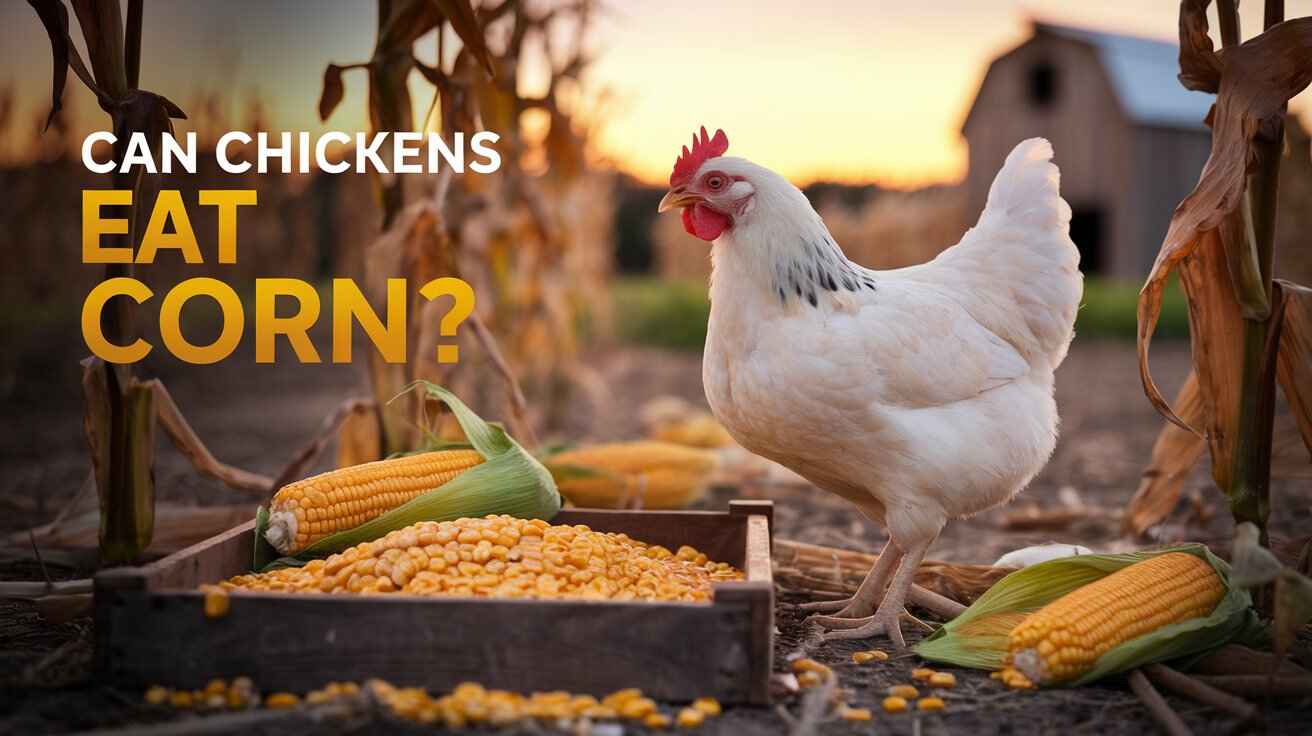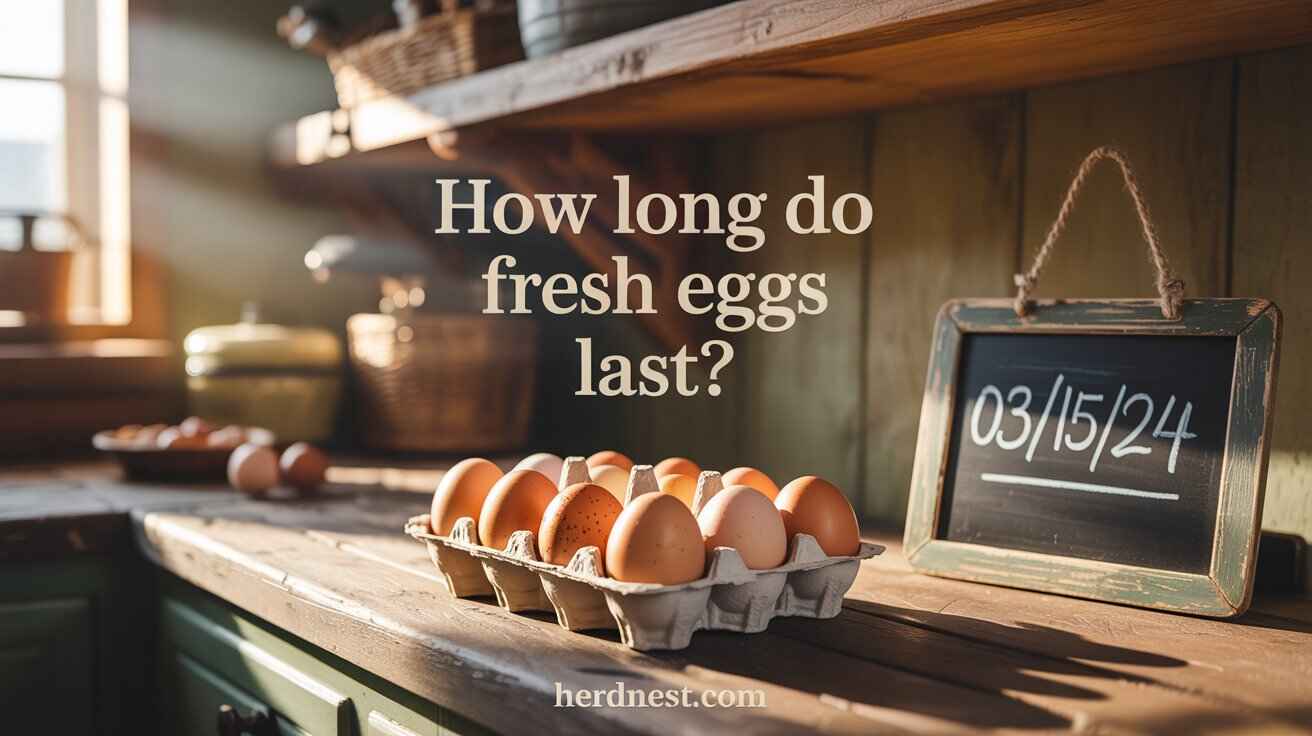When it comes to feeding chickens, the idea of providing corn sparks plenty of debate. Some see it as a nutritious, common choice, while others raise concerns about toxicity or whether it causes chickens to overheat.
The real question is how to make the best decision for your flock. Experienced owners often encounter old myths, like feeding oatmeal or cracked corn being either dangerous or incredibly beneficial. These tales can create unnecessary confusion.
From commercial bags of whole kernels to dried corn on the cob, options for feeding chickens abound. Their powerful gizzards make even large grains easy to grind, so there’s no need to worry about it being too hard for them.
While baby chicks shouldn’t be given huge kernels, older birds absolutely love corn. Still, some prefer cracked or ground corn despite its expensive rate and faster loss of nutritional value. Whether you’re feeding them straight off the cob or as part of a mix, understanding how to balance their diet is key to avoiding any controversial missteps.
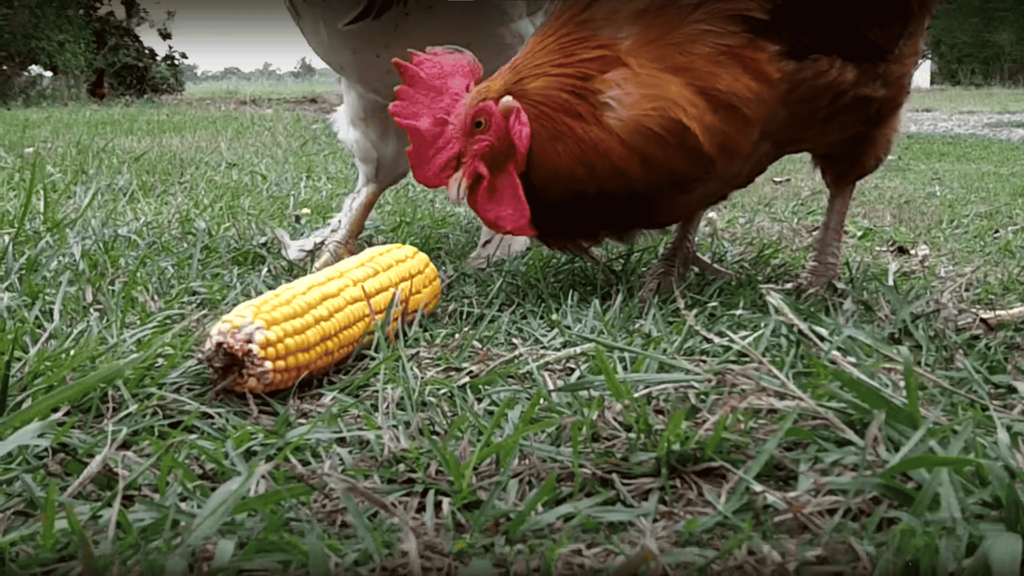
Table of Contents
ToggleCan Chickens Eat Corn?
Yes, chickens can eat corn, and they love it! Corn is a great source of energy and helps keep chickens warm in colder months. However, it should be fed in moderation as part of a balanced diet since it’s high in carbohydrates but low in protein. While whole and cracked corn are both safe, baby chicks should only have small amounts to ensure proper growth.
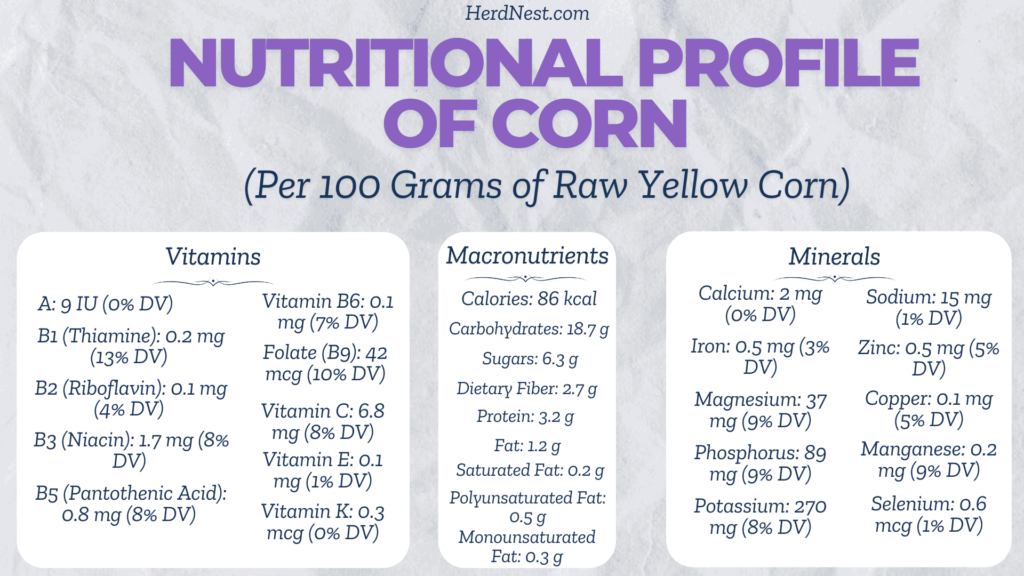
Nutritional Profile of Corn
When feeding chickens whole corn, it’s essential to understand its nutritional profile. While corn is rich in calories and carbohydrates, it lacks other vital nutrients like protein and fat. To balance their diet, offer high-quality chicken feed alongside protein-rich foods such as mealworms, insects, and snacks.
I also like to include scrambled eggs, flax meal, and kelp in their diet, which I mix into their weekly servings. Additionally, sunflower seeds make a great treat, ensuring your flock gets a variety of sources for their nutritional needs.
Whole Corn vs Cracked Corn?
A frequent question is whether to feed chickens whole corn or cracked corn, and both have their pros and cons. Whole corn takes longer to digest, which can leave chickens feeling fuller and may even help them stay warm in the winter as it takes time to metabolize. On the other hand, some argue that cracked corn is easier for chickens to eat and process.
If you’re unsure, you can offer both types of corn to see what your flock prefers, as some chickens have distinct preferences. Keep in mind that cracked corn is more expensive, so the choice ultimately depends on your budget and your chickens’ needs.
Can Baby Chicks Eat Whole Corn?
Many people question if baby chicks can eat whole grain corn, and the answer is yes—but with caution. Whole corn should only be a small amount of their diet because baby chicks need a lot of protein to grow properly.
Overfeeding corn can stunt growth, so it’s vital to include high-quality chicken feed and other protein sources like mealworms, scrambled eggs, or even insects.
For newly hatched chicks, avoid offering whole corn or extra corn altogether, as their delicate systems need carefully balanced nutrition to develop healthily.
Does Corn Help Keep Chickens Warm in Winter?
Keeping chickens active during the winter can be tough with all the snow limiting their usual foraging and dust-bathing activities. One easy way to keep them entertained is by scattering corn in their coop each morning.
It not only gets them scratching through the straw but also helps overturned and freshen the litter, which is a bonus for their environment. Since corn is a high-calorie and high-energy food, it provides the extra calories they need to maintain their body temperature, even on the coldest day.
While corn alone doesn’t create warmth, it does fuel metabolisms and helps metabolize energy more efficiently. Adding some whole kernels or even frozen corn to their diet is an excellent way to ensure they stay warm and healthy.
However, keep in mind that protein is also essential, as corn is mainly carbohydrates. Offering a balanced feed that already includes corn as a key ingredient will help meet their nutritional needs while keeping them comfortable during the winter.
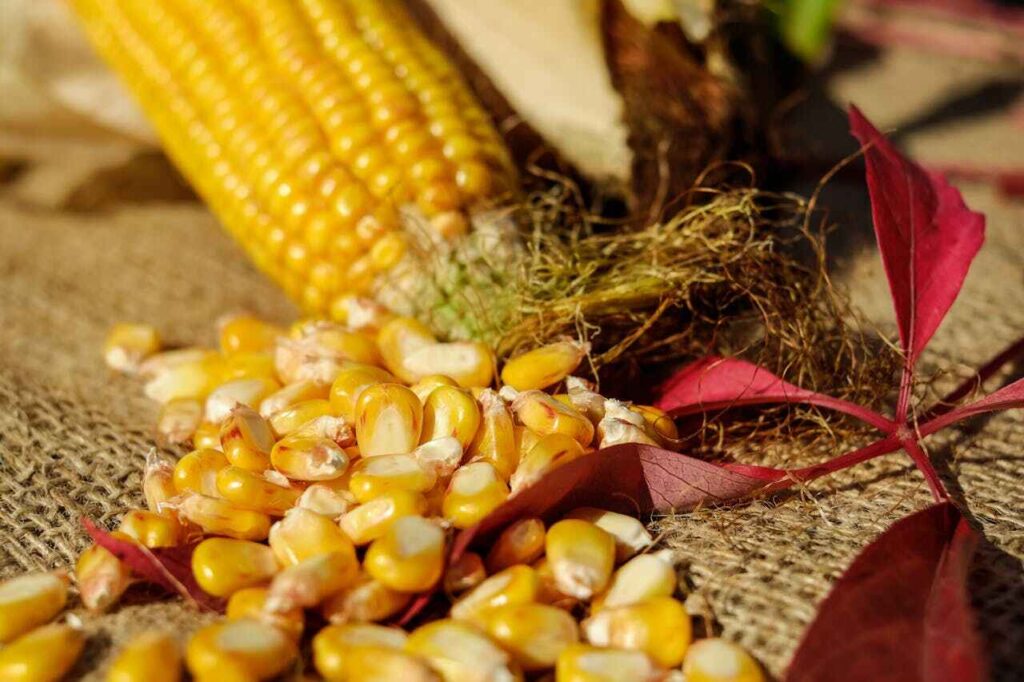
Can Too Much Corn Be Bad?
Corn is a valuable source of energy and nutrients for chickens, but feeding them too much can lead to problems. Overeating corn may make them overweight or sluggish, and their bodies may struggle with digesting the excess carbohydrates, causing digestive problems.
It’s important to moderate the amount of corn you feed and consider it as a treat rather than a staple in their diet. This ensures your flock stays healthy and avoids unnecessary issues.
Does Corn Need To Be Cooked?
Many people wonder if cooked corn is better for chickens than raw corn, as cooking can make it easier to digest. While chickens can handle raw corn without any issues, I sometimes like to roast corn on the cob or other root vegetables for my flock, especially when there’s an abundance of produce.
Whether you’re feeding whole corn raw or cooked, it’s ultimately your choice, as your chickens will enjoy it and digest it in the same manner and time.
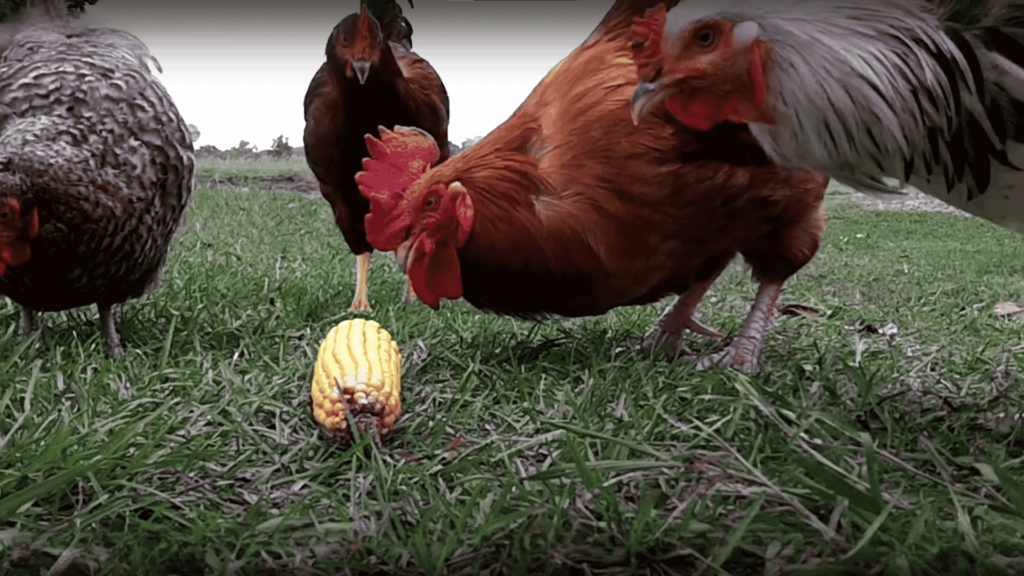
Feeding Chickens Corn
Some chicken owners wonder if feeding chickens corn is truly safe, especially during the summer months. Despite the controversial topic, feeding corn in moderation year-round is perfectly fine for your flock.
Similar to scratch grains, corn should be given in small amounts to prevent issues like obesity, which can lead to health complications such as heart attacks or a reduction in egg production.
Concerns about corn causing chickens to overheat, particularly in hot climates, are largely unfounded—it’s actually excess fat storage that raises body temperature. Offering a few cobs weekly or scattering corn on the ground will keep your flock content and even make you their favorite!
During winter, a handful of corn given nightly can help keep chickens warmer, as the additional calories provide the needed energy for maintaining heat. Whether you use dried, fresh, or frozen corn, it suits chickens of all ages and sizes.
Avoid overloading them, though, and balance their diet with quality feed to meet their needs. If in doubt, consulting an expert or doing some research can help you make the best choices for your flock’s health and daily food intake.
Final Thoughts
Corn is a great addition to a chicken’s diet, but it shouldn’t be the base of their meals. It provides energy for their body to metabolize, helping them maintain a stable temperature in colder conditions.
While corn is nutritious and can be given as a snack or treat, it’s important to be mindful of the total amount your chickens consume each day. Balancing sources of protein and other nutrients ensures their diet remains fine for overall health. As noted, a little corn goes a long way in keeping them happy and warm during the winter.
